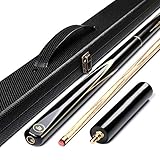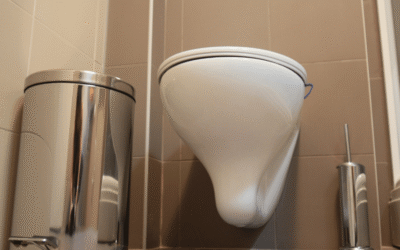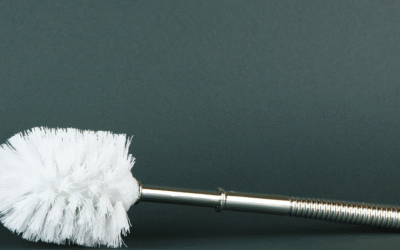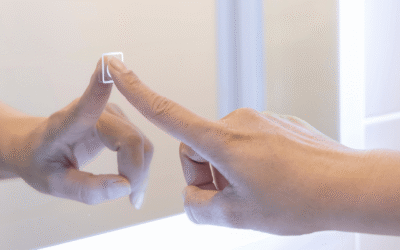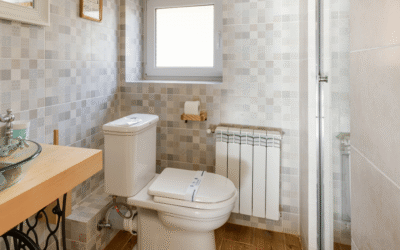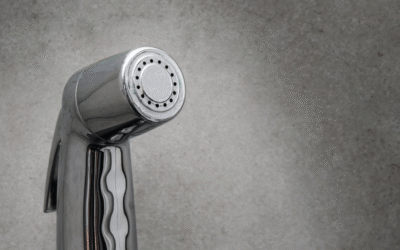Choosing the right snooker cue can make all the difference in your game. Whether you’re a seasoned professional or just starting out, the perfect cue enhances your control, precision, and overall performance. With countless options available, finding the best snooker cue tailored to your needs can seem daunting.
This guide dives into the top snooker cues on the market, highlighting their unique features and benefits. From handcrafted masterpieces to budget-friendly options, there’s something for every player. Discover what makes each cue stand out and how to select the one that matches your style and skill level.
Top Amazon Sellers
Key Takeaways
- Choosing the Best Snooker Cue: Selecting the right cue enhances control, precision, and overall performance. Consider personal needs and playing style.
- Cue Materials: Ash provides stiffness and control, while maple offers a smoother, more flexible finish. The choice of material impacts the cue’s feel and performance.
- Cue Construction: Hand spliced cues offer better balance and are preferred by professionals. Machine spliced cues are budget-friendly but may lack the same craftsmanship.
- Budget Considerations: Cues vary widely in cost. Beginners can find decent options under £70, intermediate players might spend between £70 and £200, and professionals often invest over £200 for superior quality.
- Additional Features: Veneers, quad splicing, and decorations enhance both aesthetics and performance. These features reflect the cue’s craftsmanship and can impact balance and weight distribution.
- Innovation vs. Tradition: Modern cues may include features like built-in extensions and advanced materials. Evaluate whether these innovations genuinely improve gameplay or if traditional handcrafted cues meet your needs better.
Factors to Consider When Choosing a Snooker Cue
Choosing the best snooker cue involves evaluating various elements to match a player’s needs and preferences.
Cue Materials: Ash or Maple?
Cue materials affect feel and performance. Ash provides a stiffer, coarser texture, popular among those who value control. Maple offers a smoother finish and flexibility, often preferred for its aesthetic appeal and softer touch.
One-piece, Two-piece, or Three-piece Cues
Cue pieces influence portability and balance. One-piece cues offer uniformity and balance. Two-piece cues are convenient for transport and storage. Three-piece cues add versatility, allowing different adjustments for various playing conditions.
Cue Length and Weight
Cue length and weight impact player comfort and shot precision. Standard cues typically range from 55 to 60 inches, accommodating different heights. Weights usually span from 17 to 21 ounces, with heavier cues providing more power and lighter ones offering better control.
Ferrule and Tip Specifications
Ferrule and tip specifications determine shot accuracy and spin control. Brass or fibreglass ferrules provide protection and durability. Tips range in hardness, affecting ball contact and control. Soft tips allow more spin, while hard tips offer precision and durability.
Hand Spliced vs. Machine Spliced Cues
Hand spliced and machine spliced cues differ in construction methods, affecting performance and feel. Hand spliced cues undergo a meticulous process where craftsmen join hardwood to the butt of the cue. This technique provides better balance and a more solid feel, making hand spliced cues preferred by many professionals seeking the best snooker cues.
Machine spliced cues, in contrast, result from automated processes that involve cutting and gluing pieces together. While this method is quicker and can be less expensive, it often lacks the craftsmanship associated with hand splicing. Players opting for machine spliced cues might find them suitable if they’re seeking a budget-friendly option.
In essence, the choice between hand spliced and machine spliced cues hinges on personal preference, budget, and the level of precision a player desires. Both types offer unique advantages, catering to varying styles of play and individual needs.
Budget Considerations: How Much to Spend
Selecting the best snooker cues involves considering budget constraints. Snooker cues come in various price ranges, impacting the quality and craftsmanship. Beginners often opt for lower-priced cues, generally ranging from £30 to £70. These cues provide decent performance without breaking the bank.
Intermediate players might seek cues costing between £70 and £200. These offer better materials and construction, enhancing control and precision.
Professional players and enthusiasts usually invest £200 or more in their cues. High-end cues feature superior materials and handmade craftsmanship, catering to advanced playing styles and demands.
Balancing cost with quality is crucial. Consider skill level and playing frequency to determine an appropriate budget.
Additional Features: Veneers, Quad Splicing, and Decorations
Veneers on snooker cues enhance aesthetic appeal and often indicate quality craftsmanship. These thin layers of wood, typically ebony or rosewood, are applied to the butt, adding a distinctive look.
Quad splicing, a method involving four separate pieces of wood joined to the cue’s butt, not only improves visual appeal but also enhances balance and weight distribution. This sophisticated technique elevates the cue’s overall performance, making it favoured among discerning players.
Decorations, including intricate designs and inlays, give cues a unique feel. While primarily cosmetic, these features may reflect the cue’s craftsmanship. For those seeking the best snooker cues, these additional features offer a blend of functionality and visual appeal.
Effect of Price on Performance: Do Expensive Cues Make You Play Better?
Price affects snooker cue performance in many ways. High-end cues often feature superior materials like ebony and rosewood, contributing to better balance and weight distribution. Handcrafted cues provide more precision and reliability, making them a favourite among professionals. Although high-cost cues offer enhanced performance, they’re not always essential for all players. Beginners and intermediate players can find high-quality options within their budget, offering satisfactory control and precision. Therefore, while the best snooker cues in higher price ranges offer numerous benefits, it’s crucial to match cue selection with individual skill and style.
Innovations and Gadgets: Useful or Gimmicks?
Modern snooker cues now incorporate various innovations and gadgets, promising enhanced performance for players. These advancements include features like built-in extensions, which offer flexibility in shots requiring extra reach. Some cues integrate self-aligning joints that ensure perfect alignment for improved accuracy. Advanced materials like carbon fibre provide added strength and consistency, making them appealing to some.
To evaluate their effectiveness, players should consider if these features genuinely improve their gameplay or are mere gimmicks. While high-tech additions can offer extra convenience and slight performance boosts, they might not be essential for achieving precision and control. Traditional handcrafted cues still remain popular due to their balance and solid feel, suggesting that while innovations can be beneficial, their necessity varies per player.
When selecting the best snooker cues, it is vital to balance innovation with practical needs.
Best Tip Size for Snooker Cues
Choosing the correct tip size enhances a player’s control and shot precision. The most common tip sizes for snooker cues range from 9 mm to 10 mm. Smaller tips, around 9 mm, provide more spin and control, ideal for advanced players who require finesse. Larger tips, approximately 10 mm, suit beginners due to increased surface area, making it easier to strike the cue ball consistently. Optimal tip size also depends on personal preference and playing style. When seeking the best snooker cues, considering the tip size ensures alignment with individual skill levels and gameplay requirements.
Recommendations: Top Picks for Different Budgets
For under £70, players can find reliable snooker cues suitable for beginners. These cues often feature basic designs but still offer decent control and balance. In the £70 to £200 range, intermediate players can access cues with enhanced materials and craftsmanship, providing better performance and more intricate designs. Cues over £200 usually boast superior build quality, handcrafted precision, and premium materials like ebony or rosewood, preferred by professionals seeking the ultimate in playability and durability. Every player can find the best snooker cues within their budget by considering their skill level and frequency of play.
Conclusion and Top Picks
Selecting the right snooker cue can significantly enhance a player’s performance, control, and precision. With a wide variety of options available, it’s essential to consider factors like materials, construction, and budget. Whether opting for hand spliced or machine spliced cues, players should align their choice with their skill level and personal preferences.
Budget-friendly options cater to beginners, while intermediate and professional players might invest in higher-end cues for better craftsmanship and materials. Modern innovations offer additional features, but traditional handcrafted cues remain a favourite for their balance and feel. Ultimately, the best snooker cue is one that complements the player’s style and enhances their game.
Frequently Asked Questions
Why is choosing the right snooker cue important?
Choosing the right snooker cue is crucial for improving control, precision, and overall performance in the game. A well-suited cue enhances your gameplay by providing a better feel, balance, and shot accuracy.
What are the main factors to consider when selecting a snooker cue?
When choosing a snooker cue, consider the materials (ash for control, maple for flexibility), cue length and weight, type (one-piece, two-piece, or three-piece), ferrule and tip specifications, and whether the cue is hand spliced or machine spliced.
How do I choose between ash and maple cues?
Ash cues offer greater control and stiffness, while maple cues provide a smoother finish and more flexibility. The choice depends on your preference for feel and playing style.
What are the advantages of hand spliced cues over machine spliced cues?
Hand spliced cues offer better balance and a more solid feel due to the meticulous craftsmanship involved. Machine spliced cues are more affordable and produced faster but may lack the precision and quality of hand spliced cues.
What is the ideal cue length and weight for players?
The optimal cue length and weight vary by individual preference and comfort. Generally, cues range from 55 to 59 inches in length and weigh between 17 and 19 ounces. It’s best to choose a cue that feels balanced and comfortable in your hands.
How does the tip size affect gameplay?
Tip size significantly impacts control and shot precision. Smaller tips (around 9 mm) provide more spin and control, ideal for advanced players. Larger tips (approximately 10 mm) offer a bigger surface area, suitable for beginners.
Are expensive snooker cues always better?
While high-end cues often feature superior materials and craftsmanship, they are not essential for all players. Beginners and intermediate players can find quality options within their budget that offer satisfactory control and precision.
What are built-in extensions and self-aligning joints in modern snooker cues?
Built-in extensions provide extra reach, and self-aligning joints enhance accuracy. These features are beneficial but not necessary for all players. It’s important to evaluate whether these innovations genuinely enhance your gameplay.
What is the role of veneers and quad splicing in snooker cues?
Veneers, made from materials like ebony or rosewood, enhance a cue’s appearance and indicate quality craftsmanship. Quad splicing involves joining four separate pieces of wood to improve balance and weight distribution, preferred by discerning players.
How should I budget for a snooker cue based on my skill level?
Beginners typically opt for cues priced between £30 and £70. Intermediate players may seek cues costing between £70 and £200 for better materials and craftsmanship. Professionals often invest £200 or more in high-end cues for optimal performance and durability.






